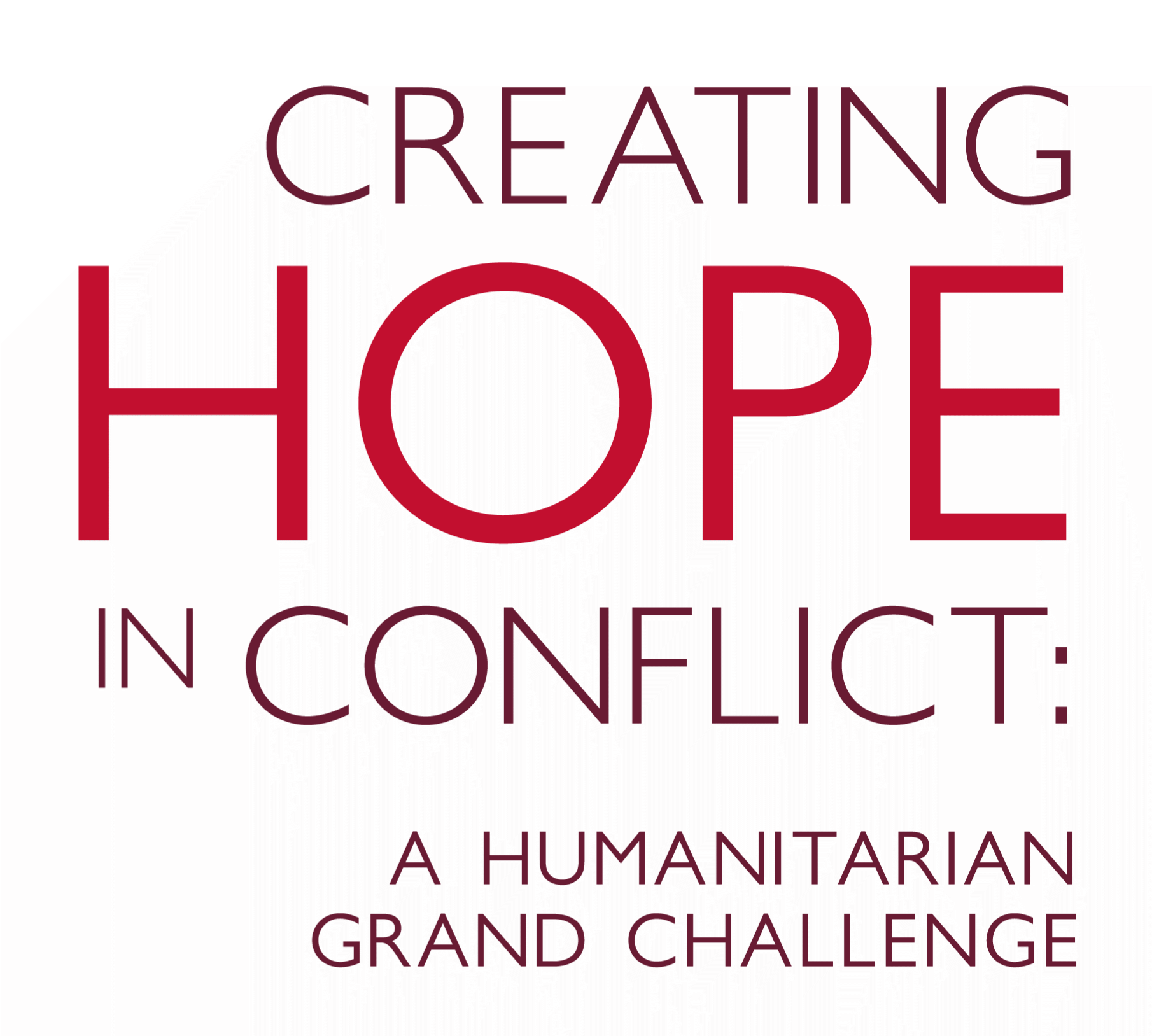Case Studies from the Creating Hope in Conflict: A Humanitarian Grand Challenge Portfolio
“…research found that if widely adopted, all three innovations can bring about product, process, or system-level changes in the humanitarian sector and increase the efficiency or cost-effectiveness of humanitarian assistance.”
At Creating Hope in Conflict: A Humanitarian Grand Challenge’s six-year mark, we have grown to serve a collective of over seventy innovators and have gathered a wealth of knowledge alongside the innovators in our community. In our work, we prioritize supporting businesses and organizations to increase the net benefit that innovation brings to conflict-affected people in humanitarian settings.
Over the years, we have taken a keen interest in understanding how we can increase the efficiency and cost-effectiveness (or value for money) of humanitarian assistance to enable innovations to reach more people with limited humanitarian aid budgets, spreading beyond their pilot locations and contributing to product, process, and system-level improvements in the broader humanitarian sector.
Last year, we contracted TripleLine Consulting to explore the value for money of three innovations that showed early evidence of success: Energy Peace Partners (EPP), Field Ready, and Hala Systems. TripleLine’s evaluation results are encouraging.
Their research found that if widely adopted, all three innovations can bring about product, process, or system-level changes in the humanitarian sector and increase the efficiency or cost-effectiveness of humanitarian assistance. Beyond this, the innovations brought a range of significant benefits to conflict-affected populations, surpassing expectations, while some are already on a path to broader adoption.
ENERGY PEACE PARTNERS (EPP)
EPP was the first to develop the Peace Renewable Energy Credit (P-REC), a unique instrument for renewable energy credit transactions in fragile, climate-vulnerable, and energy-poor contexts that otherwise lack incentives for investment. EPP applied the P-REC towards a solar mini-grid in Goma, DRC, establishing high-impact community streetlights which brought multiple benefits to residents, including increased nighttime safety and security, new business investment, and greater commercial activity through enabling extended after-dark business hours.
“The social impact of the streetlights project validates EPP’s claim to benefit conflict-affected people significantly.” (Source: Triple Line Consulting, EPP VfM case study, 2023)
Beyond this, TripleLine found that P-RECs drive increased renewable energy capacity, representing an efficiency gain as solar power becomes cheaper than diesel. Since piloting the P-REC, EPP has established new partnerships with the International Organization for Migration and US-based technology firms Block and 3Degrees to electrify Bor State Hospital in South Sudan with solar energy. Commenting on the potential for P-REC adoption by other actors, TripleLine said:
“It seems that there is an appetite among corporates for Environmental Social and Governance (ESG) products that have a bigger impact than standard renewable energy credits (RECs). RECs provide credits for renewable energy generation, but P-RECs promise an additional social impact which corporates find attractive; they see bigger impact for their purchase.” (Source: Triple Line Consulting, EPP VfM case study, 2022)
FIELD READY

TripleLine found similarly promising potential for wider innovation adoption in their Value for Money Evaluation on Field Ready. Field Ready piloted a new model of localized medical product manufacturing in Syria, involving healthcare worker training, enhanced digital technology, and partnership-building between local medical device suppliers and medical facilities. Their pilot significantly reduced the time, costs, and carbon emissions of medical device production and repair without compromising product quality. TripleLine found that the aggregate cost of Field Ready repairs was 34% of the price that traditional methods would have incurred. In comparison, the aggregate number of days taken for these repairs was 56% of what would be required. Meanwhile, the evaluation found that Field Ready’s maintenance and repairs in 70% of medical centres were more precise and of higher quality than those of traditional maintenance suppliers.
While TripleLine noted that wider adoption is dependent upon evidence generation and humanitarian actor uptake of Field Ready’s model, it is encouraging that Field Ready has founded the Local Procurement Learning Partnership (hosted by the Humanitarian Logistics Association) to encourage mutual learning, knowledge sharing and coordination to build a solid policy and practice base for local procurement. As summarized by TripleLine:
“Field Ready aims to bring about systemic change in the way humanitarian logistics is conducted, with concomitant localization benefits. The CHIC-funded Syria project provided a case study that validated this aspiration convincingly.” (Source: Triple Line Consulting, Field Ready VfM case study, 2023)
HALA SYSTEMS

Finally, also working in Syria, Hala Systems has developed an early warning system called Sentry Syria that uses multiple information sources to deliver accurate, automated (remotely triggered), and timely warnings, allowing civilians and humanitarian actors time to take early protective measures to limit airstrike casualties. According to TripleLine’s evaluation, the Sentry system—and potentially any future iterations in other conflict or disaster settings—saves lives, reduces injuries, and reduces stress and trauma in a way no other intervention achieves in Syria. Importantly, it provides a degree of reassurance to 2 million Syrians at a cost of CAD 997,484, which is low in the context of the humanitarian country budget. While efforts to promote wider adoption of Sentry are still underway, TripleLine’s evaluation revealed that Sentry has the potential to develop into an innovation of wide application in humanitarian settings, both conflict settings (e.g., detecting artillery, mortar, or small arms fire, and not just air attacks) and in environmental disasters.
Combining the findings across TripleLine’s three case studies, CHIC is developing a growing evidence-based demonstrative of the value for money of its investments. CHIC hopes to build off the learnings from these innovations as it supports a new round of innovators while always remembering to critically reflect upon where and how innovations achieve impacts at the broader systems level.




